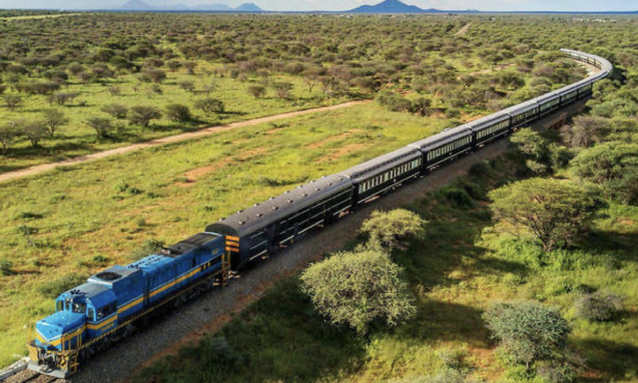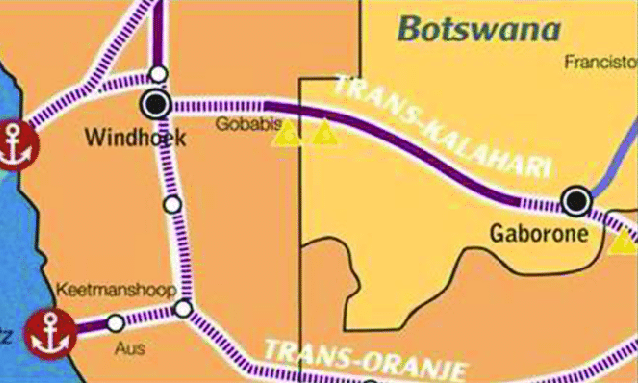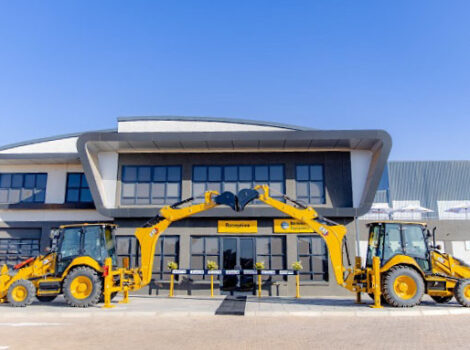
27 February 2025
The governments of Namibia and Botswana have reiterated their commitment to the Trans-Kalahari Rail Corridor Development Project (TKRP), an ambitious initiative aimed at enhancing regional trade and economic integration within the Southern African Development Community (SADC). First conceptualised in 2010, the railway project is expected to be a transformative infrastructure investment with long-term benefits for both nations and the broader region.
At a high-level ministerial committee meeting in Swakopmund, Namibia, Namibia’s Minister of Works and Transport, John Mutorwa, underscored the importance of advancing the project beyond conceptual discussions. He stressed that the meeting’s primary focus was to assess the implementation of resolutions from the previous engagement in Kasane, Botswana, and to ensure that progress moves towards a point of no return. Mutorwa reiterated that public resources should not be expended on meetings that yield no tangible outcomes and called for concrete actions in realising the railway’s development.
The legal framework governing the Trans-Kalahari Railway Line was established in 2014 when the two countries signed an agreement to formalise the project.
However, delays in implementation have persisted over the years. Mutorwa urged for the project’s full realisation as a tribute to past and present leaders of both nations who envisioned a more interconnected region.
Echoing these sentiments, Botswana’s Minister of Transport and Infrastructure, Noah Salakae, emphasised that the 1,500km railway project is not merely a transport initiative but a legacy of economic transformation. He described it as a vital link that would integrate a fragmented SADC trade bloc, fostering inclusivity and economic prosperity. Salakae further stressed the railway’s role in addressing critical socio-economic challenges such as poverty, unemployment, and income disparities.

In alignment with Botswana’s new Infrastructure Investment Plan, which prioritises economic growth through infrastructural expansion, the railway line is seen as a key driver of sustainable development. Salakae expressed optimism about the project’s renewed momentum, citing the completion of a pre-feasibility study and the development of a roadmap to guide further dialogue and implementation.
A crucial aspect of the initiative is the public-private partnership (PPP) model, which both ministers highlighted as essential for securing financing and expediting the project’s execution.
By leveraging private sector investment alongside government backing, the railway corridor is expected to be developed efficiently while ensuring long-term viability.
Furthermore, the railway line holds strategic significance under the African Continental Free Trade Area (AfCFTA) and aligns with the African Union’s Agenda 2063, which envisions a continent-wide economic integration strategy. Once operational, the corridor will enhance the movement of goods, improve trade efficiencies, and solidify Namibia and Botswana’s roles as key transit hubs within the region.
With both governments reaffirming their commitment, the focus now shifts towards ensuring that previous bottlenecks in implementation are addressed. The Trans-Kalahari Rail Corridor has the potential to become a flagship infrastructure project within Southern Africa, serving as a catalyst for regional economic growth and development.
Source: https://rb.gy/pav6dc



